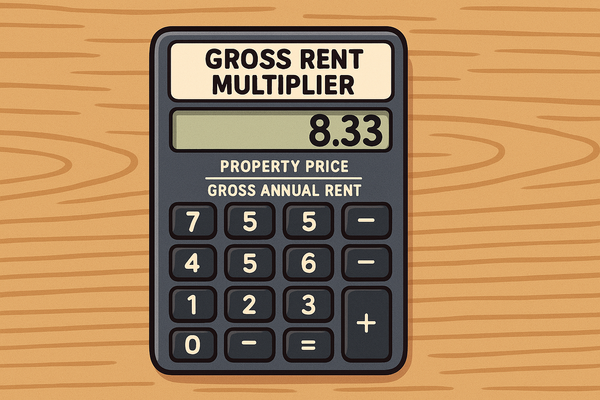Iowa Squatter's Rights Guide: 2025 Laws, HB 322, and Property Protection 🏡
Iowa only requires squatters to occupy property continuously for 5 years before they can file an adverse possession claim

For property owners in Iowa, understanding squatter's rights laws is essential to protect your investment and prevent potential loss of property through adverse possession claims. Recent legislative developments like House Bill 322 are changing the landscape, potentially providing stronger protections for property owners against unauthorized occupants.
Key Takeaways
- Iowa requires squatters to occupy property continuously for 5 years before they can file an adverse possession claim
- The proposed HB 322 law would allow property owners to request immediate removal of squatters by law enforcement
- Squatters must pay property taxes and typically need "color of title" to make a valid adverse possession claim
- If passed, HB 322 would introduce criminal penalties for squatting, ranging from misdemeanors to serious offenses
- Regular property inspections and security measures are the best prevention against squatters
- Iowa's 5-year requirement is significantly shorter than many states, making vigilance particularly important
Shocking Iowa Squatter Reality: In a heart-wrenching 2009 Cedar Rapids, Iowa incident that epitomizes the human cost of property rights battles, cancer patient Steffi Dudrey discovered a brazen squatter had taken over her foreclosed home while she was undergoing treatment for Hodgkin's lymphoma. The audacious intruder—who had fashioned makeshift bedding from torn carpet backing—casually offered her just $10 to "forget the whole thing" when confronted. This disturbing case underscores why Iowa's remarkably short 5-year adverse possession timeframe creates heightened vulnerability for property owners across the state.
While Iowa law currently states that an individual may attempt to gain title and ownership of a property through adverse possession after residing there continuously for five years, this process could be significantly impacted if House Bill 322 passes.
The proposed legislation would allow property owners to request expedited removal by law enforcement, potentially preventing squatters from meeting the continuous residence requirement. Even if a squatter remains on the property for five years, they must also meet strict requirements, including open and notorious possession, exclusive control, payment of property taxes, and in many cases, having "color of title," before they can initiate a legal claim for adverse possession.
Understanding Iowa Squatter Rights in 2025
In Iowa, squatting itself is not legal, though squatters have historically had certain rights through the doctrine of adverse possession. This legal principle allows individuals who occupy abandoned or neglected property without permission to potentially gain legal ownership after meeting specific conditions over a designated period.
It's important to understand the distinction between squatting and trespassing. While trespassing is a criminal offense that involves entering property without permission, squatting typically involves a person living on a property for an extended period without authorization. The distinction becomes important in how law enforcement can respond to each situation.
With the pending House Bill 322, Iowa may be shifting from treating squatting as a purely civil matter to one with potential criminal implications, which would substantially strengthen property owners' rights.
Iowa Adverse Possession Requirements
For a squatter to claim legal ownership through adverse possession in Iowa, they must satisfy several stringent requirements known as the "OCEAN" framework:
Open and Notorious
The occupation must be visible and obvious to anyone, including the rightful owner. This prevents hidden or secretive occupation from qualifying for adverse possession. The squatter must live openly as if they were the rightful owner.
Continuous
The squatter must occupy the property continuously for 5 years without interruption. Any temporary abandonment resets the clock on the adverse possession claim. This five-year timeframe is shorter than many other states require, making Iowa properties potentially more vulnerable.
Exclusive
The possession must be exclusive, meaning the squatter cannot share the property with others, including the rightful owner. The squatter must have sole control over the property.
Actual
The squatter must physically occupy the property and treat it as their own. This includes maintaining the property, making improvements, or otherwise demonstrating actual possession. Simply claiming the property without physical occupation is insufficient.
Hostile
In legal terms, "hostile" does not imply aggression but rather indicates that the occupation is without the owner's permission and against their rights. This can include situations where the squatter honestly believes they have a right to the property due to a misunderstanding or error.
Beyond these five fundamental requirements, Iowa law imposes additional conditions:
- The squatter must pay all property taxes for the property during the 5-year period
- They must make improvements to, cultivate, or protect the property
- In many successful cases, they must have a "color of title" - a document that appears to give them ownership but contains a legal defect
Iowa's HB 322: The Potential Game-Changing Squatter Law
As of February 2025, Iowa lawmakers have filed House Bill 322, which would represent a significant change to Iowa's squatting laws if passed. This legislation would fundamentally transform how unauthorized property occupation is addressed in the state.
Key Provisions of the Proposed HB 322:
- Expedited Removal Process: Property owners could request immediate removal of squatters by local law enforcement under specific conditions:
- The individual has unlawfully entered and remains on the property
- The individual has been directed to leave but has refused
- The person is not a current or former tenant involved in a legitimate legal dispute
- Criminal Penalties: The law would establish graduated penalties for squatting-related activities:
- For damages less than $1,000: simple misdemeanor with up to 30 days in jail and fines ranging from $105 to $855
- For damages exceeding $1,000: serious misdemeanor, punishable by up to one year in prison and fines between $430 and $2,560
- Law Enforcement Role: Local sheriff's offices would be empowered to directly remove squatters after verifying the property owner's complaint, eliminating the need for lengthy civil court proceedings in many cases.
- Protection for Legitimate Tenants: The law would explicitly exclude current or former tenants involved in legal disputes from the expedited removal process, preserving tenant protections while addressing unauthorized occupation.
This legislation represents a decisive response to increasing concerns about squatting incidents throughout Iowa. While maintaining the legal concept of adverse possession, the law would create clear pathways for property owners to remove unauthorized occupants without enduring prolonged civil proceedings.
How Iowa's Approach Differs From Other States
Iowa's approach to squatter rights has positioned it in a middle ground nationally, though its 5-year adverse possession requirement is on the much shorter end of the spectrum, making properties potentially more vulnerable than in states with longer timeframes.
Adverse Possession Timeframes
| State | Required Occupation Period | Tax Payment Required |
|---|---|---|
| Iowa | 5 years | Yes |
| California | 5 years | Yes |
| New York | 10 years | No |
| Texas | 10 years (3 with deed) | Yes |
| Georgia | 20 years (7 with deed) | Yes |
| Wisconsin | 20 years (10 with color of title, 7 with taxes) | Varies |
| New Jersey | 30 years | Varies |
Enforcement Approaches
Currently, Iowa treats squatting primarily as a civil matter requiring court proceedings, but the proposed HB 322 would create a direct pathway for law enforcement involvement, similar to recent laws passed in Florida, Wyoming, and other states. This represents a significant shift toward treating unauthorized occupation as a potential criminal matter rather than solely a property dispute.
States like California and New York typically require property owners to go through lengthy eviction processes even for clear cases of squatting. If HB 322 passes, Iowa would enable sheriffs to verify ownership claims and remove unauthorized occupants directly in many cases.
Criminal vs. Civil Treatment
The proposed HB 322 would establish clear criminal penalties for squatting activities, with charges ranging from misdemeanors to more serious offenses depending on the circumstances. Most other states still primarily address squatting through civil remedies, with criminal charges typically limited to associated activities like breaking and entering or property damage.
Legislative Trends
Iowa's consideration of HB 322 follows several states including Florida, Wyoming, Tennessee, Georgia, and Alabama that have recently passed similar legislation to streamline the removal of unauthorized occupants and establish stronger criminal penalties. This appears to be part of a national trend toward strengthening property owners' rights against squatters.
The differences highlight how Iowa may be joining a growing movement toward protecting property rights through a multi-faceted approach that combines traditional adverse possession doctrine with enhanced enforcement mechanisms and criminal deterrents.
How to Prevent Squatters in Iowa Properties
Prevention remains the most effective strategy for property owners. Here are key preventive measures to protect your property from squatters:
Regular Property Inspections
- Visit vacant properties regularly or hire a property management company to conduct routine inspections
- Document the condition of the property with dated photographs
- Maintain landscaping and exterior appearance to show active ownership
Security Systems and Monitoring
- Install visible security cameras and alarm systems
- Consider smart home security that provides remote monitoring capabilities
- Use motion-activated lighting around the property perimeter
- Install sturdy locks, security doors, and window reinforcements
Property Maintenance
- Keep utilities active but on minimum service levels for vacant properties
- Maintain landscaping and exterior appearance
- Collect mail regularly or have it forwarded
- Schedule timed interior lighting to create the appearance of occupation
Documentation and Signage
- Post "No Trespassing" signs prominently on the property
- Maintain comprehensive documentation of ownership
- Consider filing a "Declaration of Use" with your county property appraiser
- Maintain records of all property taxes paid and improvements made
Community Involvement
- Inform neighbors about vacant properties and ask them to report suspicious activity
- Join neighborhood watch programs
- Consider hiring a house-sitting service for extended absences
Professional Management
- Retain a property management company for vacant properties
- Consider short-term rentals if appropriate for your property
- Ensure quick tenant placement to minimize vacancy periods
These preventive measures not only deter potential squatters but also help establish a clear record of active ownership that can prove invaluable if adverse possession claims arise.
Legal Process for Removing Squatters in Iowa
If prevention fails and you discover squatters occupying your property, Iowa's current laws require following established eviction procedures. If HB 322 passes, a more streamlined process would become available:
Current Iowa Eviction Process:
- Serve an Eviction Notice: Provide a written notice to vacate in accordance with Iowa landlord-tenant law, which could be:
- A three-day notice to pay or quit (for nonpayment)
- A seven-day notice to cure or quit (for lease violations)
- A three-day unconditional notice to quit (for endangering health or safety)
- File a Complaint: File a complaint of forcible detainer with Iowa Small Claims Court
- Attend Court Proceedings: Present your case to the judge with evidence of your lawful ownership
- Obtain a Writ of Possession: If successful, the court will issue this document ten days after the hearing
- Sheriff's Execution: The sheriff will post the writ and give the squatter up to 72 hours to move out before returning to remove them if they don't leave voluntarily
This process may vary slightly from county to county, but in general, the structure and timeline of the eviction process remains consistent across the state of Iowa.
Potential Process Under Proposed HB 322:
- Document Ownership: Gather proof of property ownership such as deed, property tax records, mortgage statements, or other official documentation
- File a Verified Complaint: Submit a detailed complaint to the local sheriff's office, including:
- Proof of ownership
- Description of the unauthorized occupants
- Statement that the occupants entered unlawfully
- Confirmation that the occupants have been asked to leave but refused
- Verification that the occupants are not current or former tenants in a legal dispute
- Law Enforcement Verification: The sheriff's office would verify your ownership claim and determine if the situation qualifies for immediate removal under HB 322
- Removal Notice: If verified, law enforcement would serve notice to the unauthorized occupants requiring them to vacate, typically with a short timeframe
- Physical Removal: If the squatters fail to vacate, law enforcement could physically remove them from the property
- Secure the Property: Once squatters are removed, immediately secure the property to prevent reoccupation
The potential HB 322 process would significantly reduce the time and cost associated with removing unauthorized occupants in qualifying cases, providing substantial benefits to Iowa property owners.
Case Study: The Cedar Rapids Foreclosure Incident
A powerful example of squatting in Iowa occurred in Cedar Rapids in 2009. Steffi and Brian Dudrey had lost their home to foreclosure after Steffi was diagnosed with Hodgkin's lymphoma, forcing her to take medical leave and reducing their income. Despite losing ownership, they continued to check on the property to maintain it for the upcoming sheriff's sale.
In July 2009, Steffi discovered that someone had been living in their former home. The property was trashed, with carpet backing fashioned into a makeshift bed and carpet pieces placed under a basement window—apparently the entry point. When she confronted the squatter, a thin, long-haired man, he admitted to staying in the house but claimed he believed it was abandoned due to foreclosure.
In an audacious move, the man offered Steffi $10 to "forget the whole thing." She refused and contacted law enforcement. Police arrested Everett R. Lindsay, 31, on suspicion of third-degree burglary and carrying a concealed weapon (brass knuckles).
This case highlights how vulnerable foreclosed properties can be to squatters and the importance of regular monitoring. It also demonstrates the emotional impact that squatting can have on property owners, even those who have lost their homes to foreclosure.
Landlord Rights and Responsibilities
As a property owner in Iowa, you have specific rights and responsibilities regarding squatters:
Rights:
- Pursue eviction procedures under current law
- Request immediate removal of unauthorized occupants if HB 322 passes
- Seek damages for property destruction or unauthorized modifications
- File trespassing charges in appropriate circumstances
- Maintain and protect your property from unauthorized entry
Responsibilities:
- Follow legal procedures for removal rather than attempting "self-help" evictions
- Distinguish between squatters and legitimate tenants with legal disputes
- Properly document ownership and unauthorized occupation
- Pay appropriate fees for sheriff's services when utilizing eviction procedures
- Secure property after removal to prevent reoccupation
Understanding these rights and responsibilities helps ensure that you address squatter situations legally and effectively while avoiding potential liability for improper removal procedures.
Tenant vs. Squatter: Legal Distinctions
It's crucial to understand the legal difference between a tenant and a squatter, as the removal processes differ significantly:
Tenants:
- Have lawful permission to occupy the property through a formal or informal agreement
- Pay rent (though may be behind on payments)
- Have established rights under Iowa landlord-tenant laws
- Must be removed through formal eviction proceedings
- Include former tenants whose leases have expired but continue to occupy the property
Squatters:
- Never had lawful permission to occupy the property
- Entered the property without authorization
- Pay no rent and have no rental agreement
- Can potentially be removed through expedited processes if HB 322 passes
- Have no legitimate claim to tenancy rights
Key Distinctions in Documentation:
- Tenants have lease agreements, rent receipts, or evidence of payment
- Squatters typically cannot produce legitimate documentation of occupancy rights
- Property owners should maintain records that clearly establish who is authorized to occupy their properties
Properly identifying whether an occupant is a tenant or squatter is essential for determining the appropriate legal process for removal and avoiding potential legal complications.
Frequently Asked Questions
General Squatter Rights Questions
Q: What are squatter's rights in Iowa? A: Squatter's rights refer to adverse possession laws that potentially allow someone to claim ownership of property after occupying it openly, continuously, and without permission for five years while meeting specific legal requirements.
Q: Is squatting illegal in Iowa? A: Yes, unauthorized occupation of property is illegal in Iowa. The proposed HB 322 law would establish clear criminal penalties for squatting activities, ranging from misdemeanors to more serious offenses depending on the circumstances.
Q: How long does someone have to squat on property in Iowa to claim ownership? A: In Iowa, a squatter must continuously occupy a property for five years before they can file an adverse possession claim. They must also meet several other requirements, including paying property taxes.
Q: Do squatters have to pay property taxes in Iowa? A: Yes. To make a valid adverse possession claim in Iowa, squatters must pay all property taxes during their occupation period.
Prevention and Removal
Q: How can I prevent squatters from occupying my property? A: Regular property inspections, security systems, property maintenance, "No Trespassing" signs, and professional property management are effective prevention strategies.
Q: How do I remove squatters from my property in Iowa? A: Currently, you must follow formal eviction procedures, which can be time-consuming. If HB 322 passes, property owners would be able to file a verified complaint with the local sheriff's office for potentially immediate removal if the occupants entered unlawfully and have refused to leave.
Q: Can I physically remove squatters myself? A: No. Self-help evictions are illegal in Iowa. Property owners must use legal processes, either through formal eviction procedures or, if HB 322 passes, through law enforcement intervention.
Q: Can I turn off utilities to force squatters to leave? A: No. Turning off utilities is considered a self-help eviction tactic and is illegal in Iowa. This could potentially expose you to legal liability.
Legal Implications
Q: What is the proposed law in Iowa about squatters (HB 322)? A: HB 322, if passed, would allow for expedited removal of squatters by law enforcement and establish criminal penalties for unauthorized occupation of residential property.
Q: How does Iowa's approach to squatters differ from other states? A: Iowa's 5-year requirement is shorter than many states (like New York's 10 years or Georgia's 20 years) but similar to California's 5 years. The proposed HB 322 would make Iowa's laws more property-owner friendly by establishing criminal penalties and expedited removal processes.
Q: What's the difference between a squatter and a trespasser? A: Trespassing is a temporary unauthorized entry, while squatting involves sustained occupation of a property. Trespassing is immediately addressed as a criminal matter, while squatting has historically been treated as a civil issue (though this is changing with proposed legislation like HB 322).
Q: Can squatters be charged with a crime in Iowa? A: Currently, squatters may face charges related to breaking and entering or property damage, but not for squatting itself. If HB 322 passes, squatters could face criminal charges ranging from misdemeanors to more serious offenses depending on their actions and the amount of property damage.
Conclusion
Iowa's approach to squatter's rights continues to evolve, with House Bill 322 representing a potential transformation that would strengthen property owners' rights while maintaining the historical legal doctrine of adverse possession under strictly defined circumstances.
The five-year timeframe for adverse possession claims would remain in place, but the proposed criminal penalties and expedited removal processes would make successful adverse possession significantly more challenging to achieve. Property owners would have greater certainty and more efficient remedies against unauthorized occupation.
For property owners, the keys to protecting your investment include:
- Regular monitoring and maintenance of properties
- Prompt action if unauthorized occupants are discovered
- Following legal procedures rather than self-help eviction measures
- Maintaining comprehensive documentation of ownership and property conditions
- Considering professional property management for vacant properties
By understanding Iowa's squatter rights laws and taking preventive measures, property owners can significantly reduce their risk of unauthorized occupation and potential adverse possession claims.
Resources and References
Disclaimer: This article provides general information and does not constitute legal advice. Consult with a qualified attorney for guidance on your specific situation.





